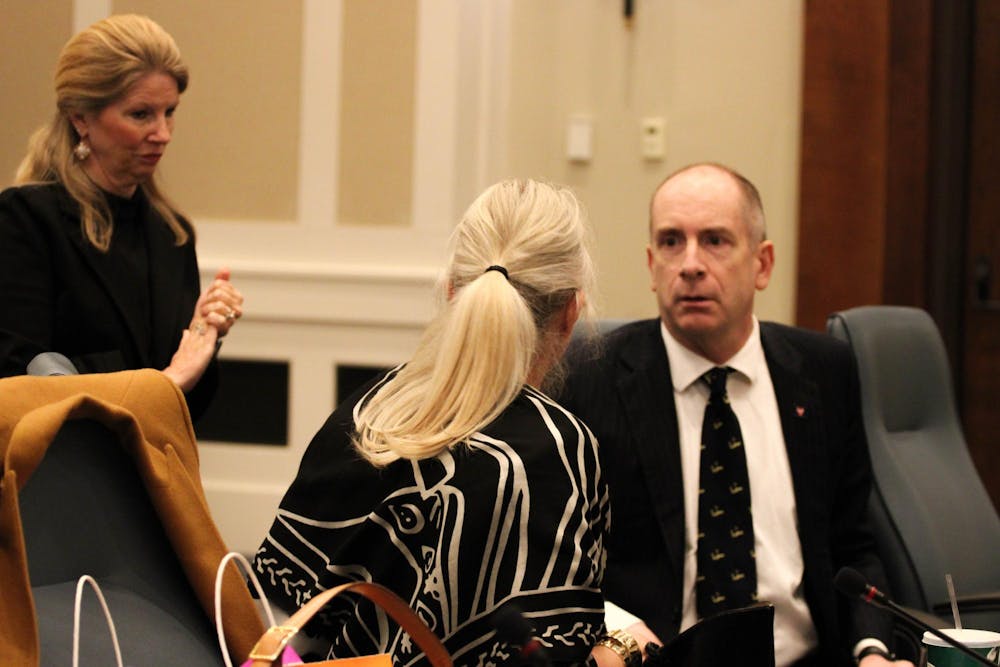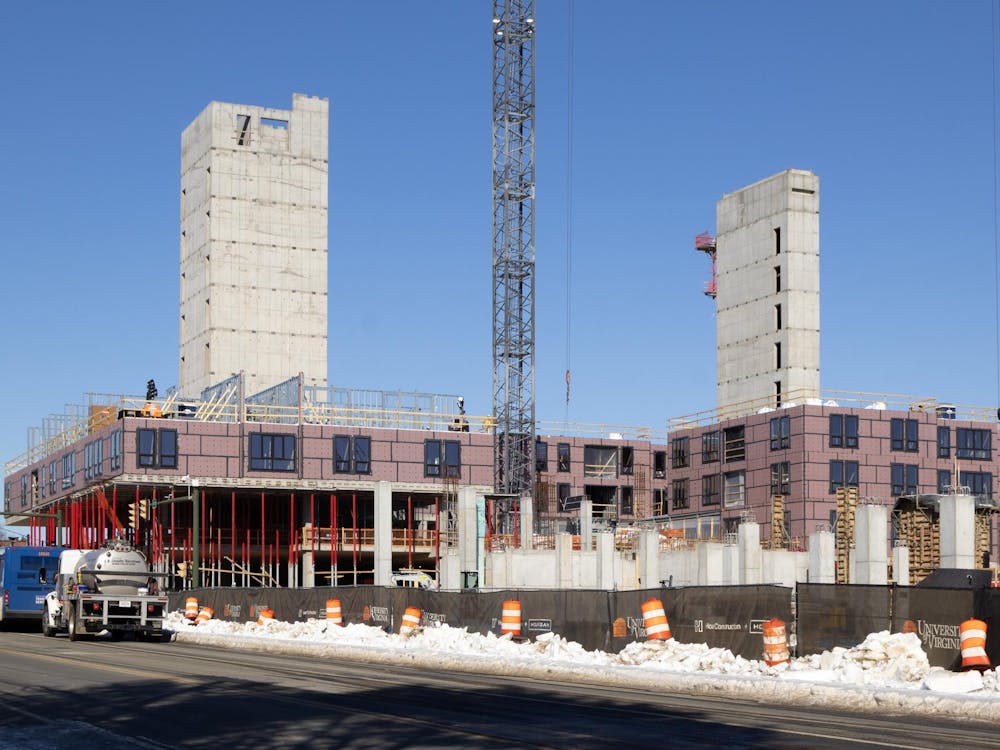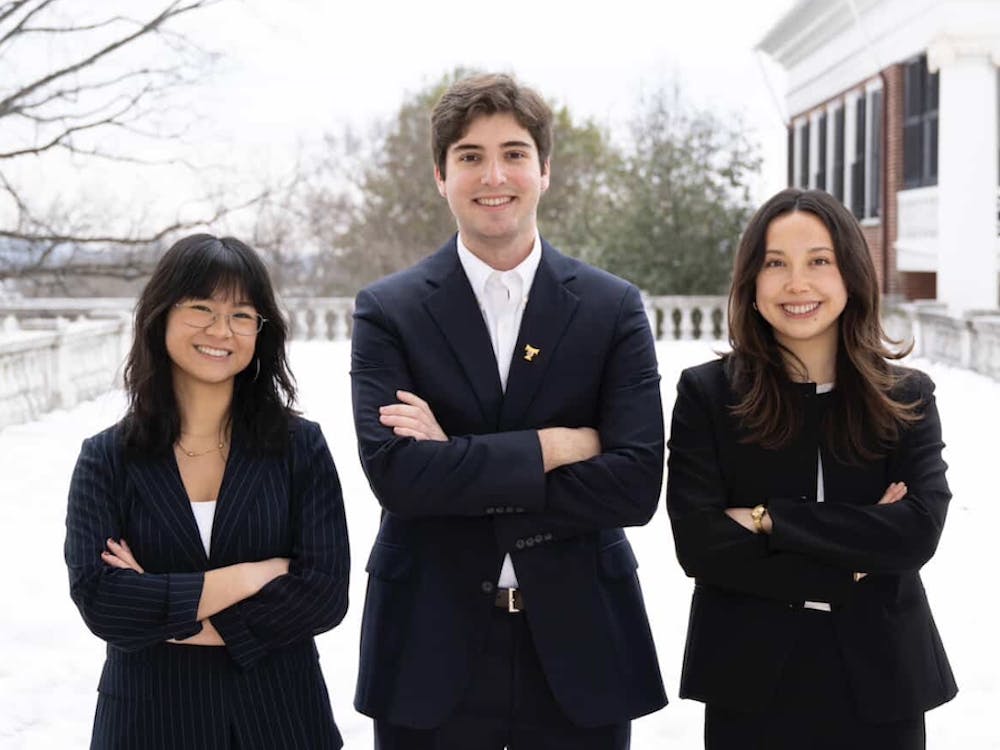The presidential search committee and the University’s external search firm announced Friday that the search would continue, despite a Faculty Senate resolution passed Nov. 14 which called for a pause. In its responses to the Faculty Senate’s resolution, the committee said they have not selected finalists, and because of this, their work must continue, while they also reassured the community that the search was being conducted thoroughly.
“As a committee, we want to state unequivocally: this search has been conducted with rigor, fairness, and integrity thus far,” the committee wrote. “We would not lend our names or our service to a process that failed to meet those standards.”
These responses — which included two separate letters from the search committee and John Isaacson, chair of Isaacson, Miller — also came following a letter sent by Gov.-elect Abigail Spanberger Nov. 12, which asked that the Board of Visitors not select finalists or appoint a president until she has filled five vacant seats on the Board.
Spanberger said that throughout the past six months, the Board’s actions have “undermined” the community’s trust in their leadership, and that without this trust a new president should not be appointed.
The Faculty Senate’s resolution additionally noted that Rector Rachel Sheridan and Vice Rector Porter Wilkinson had refused multiple requests to meet with faculty and discuss the circumstances of former University President Jim Ryan’s resignation — a move the resolution said “demonstrates a lack of courage, leadership and accountability.”
The search committee’s message confirmed that they recently finished first round interviews, but are not at the point of selecting finalists for the presidency. Because the search for finalists is still ongoing, the committee said, they must continue the search process as planned.
“To responsibly narrow this exceptional pool, we must conduct additional due diligence, hold further interviews, and continue our internal deliberations,” the committee wrote.
The Faculty Senate’s resolution and Spanberger’s letter both brought up community concerns that the Board has not worked transparently or in the best interests of the University, and the Faculty Senate resolution called on Sheridan and Wilkinson to resign due to the community’s lack of trust. These concerns also led the Faculty Senate to call on the committee to halt the search.
The Faculty Senate’s concerns have been based on what they see as the Board’s inability to discuss the Justice Department investigations and Ryan’s resignation. Spanberger noted votes of no confidence in the Board passed by the Faculty Senate as well as Student Council, which called for increased student representation on the search committee this summer. She said that faculty and students’ trust is essential to the University’s success.
The letters from Isaacson and the search committee focused on the need for confidentiality as an explanation for why they could not provide more information regarding the search.
“We know there is concern across Grounds about trust and transparency in the process. While we understand these concerns, a successful presidential search must uphold strict confidentiality,” the committee wrote.
Faculty Senate Chair Jeri Seidman told The Cavalier Daily that senators had called for a pause in the search, not a breach of confidentiality.
In his message to the Faculty Senate, Isaacson shared that the committee has hosted more than 40 listening sessions with the community to create a profile for the ideal candidate. He said that the committee is larger than most presidential search committees and has hosted more than a typical number of listening sessions.
Isaacson also shared that the committee has searched for candidates with connections to the University and said that they have found a broad pool of qualified candidates through outreach.
“Over the last three months, the Committee has engaged in a meticulous and comprehensive effort to recruit, screen, and vet hundreds of potential candidates. The evaluation has been rigorous and thorough, in accordance with best search practices and guided by the priorities expressed by their colleagues in the U.Va. community,” Isaacson wrote.
Both Isaacson and the committee said that the search and its timeline were “entirely” typical for a presidential search.







